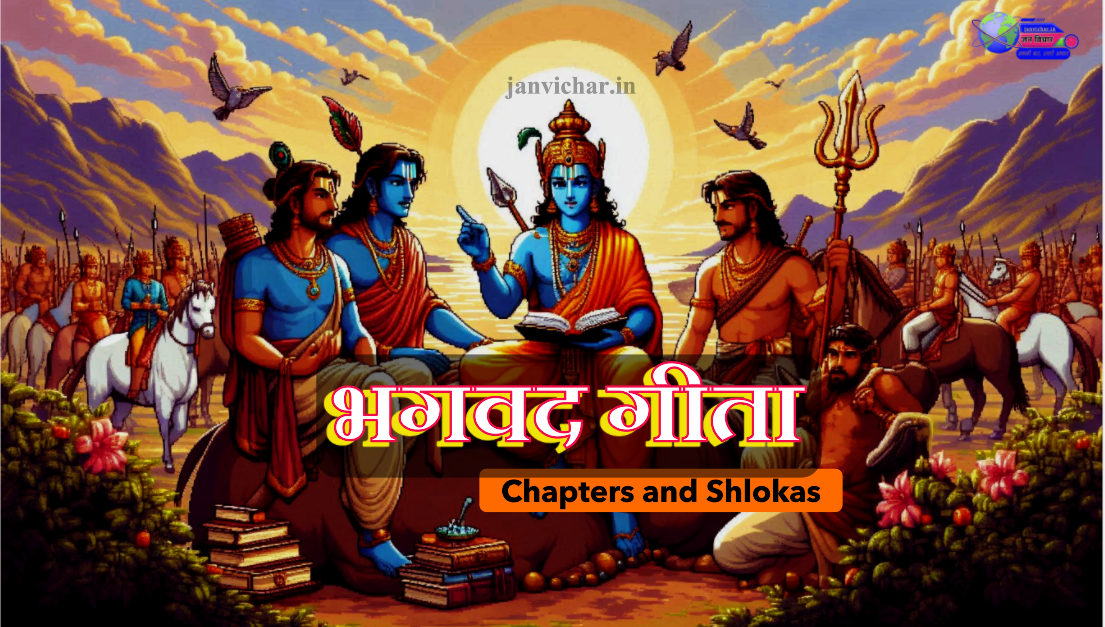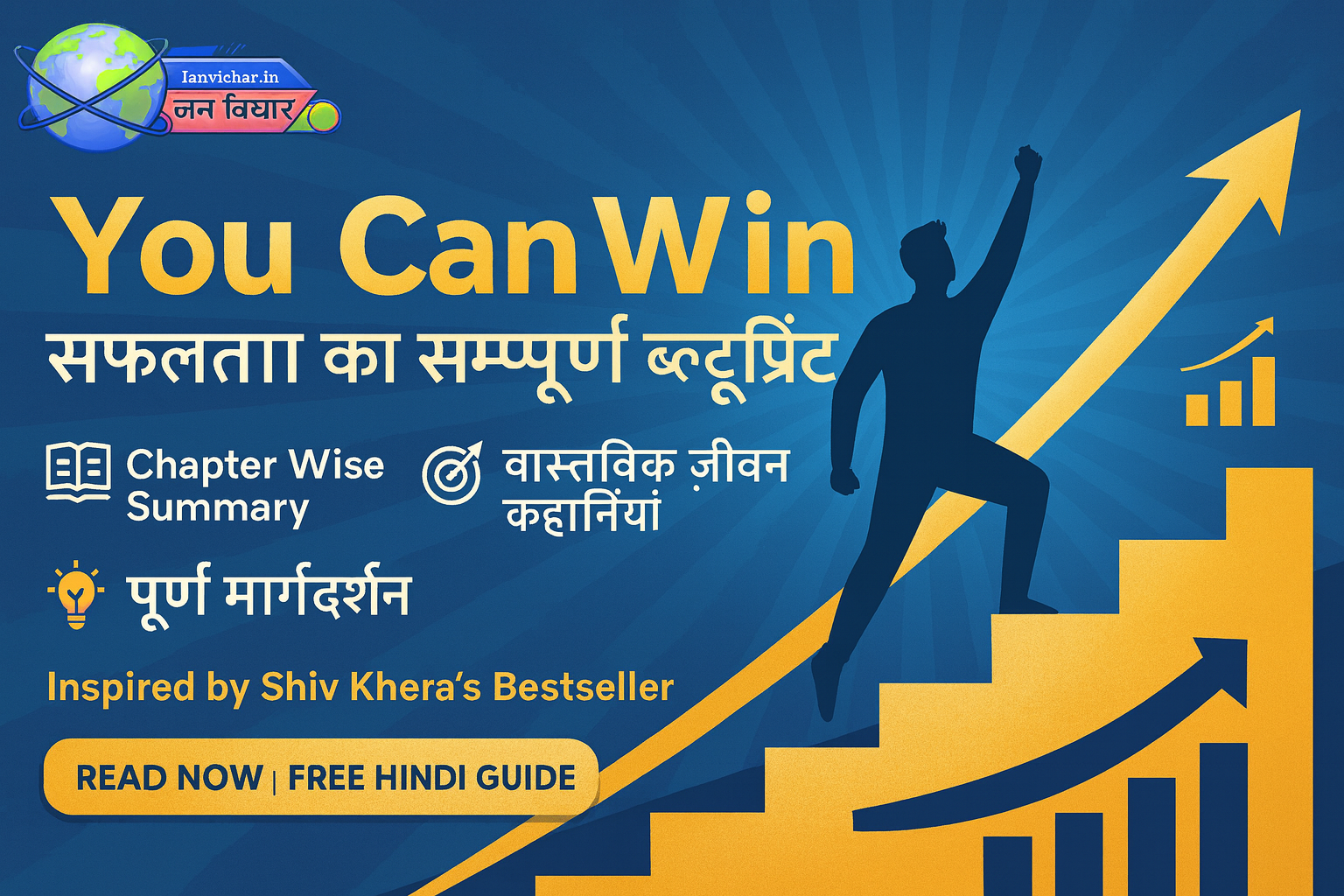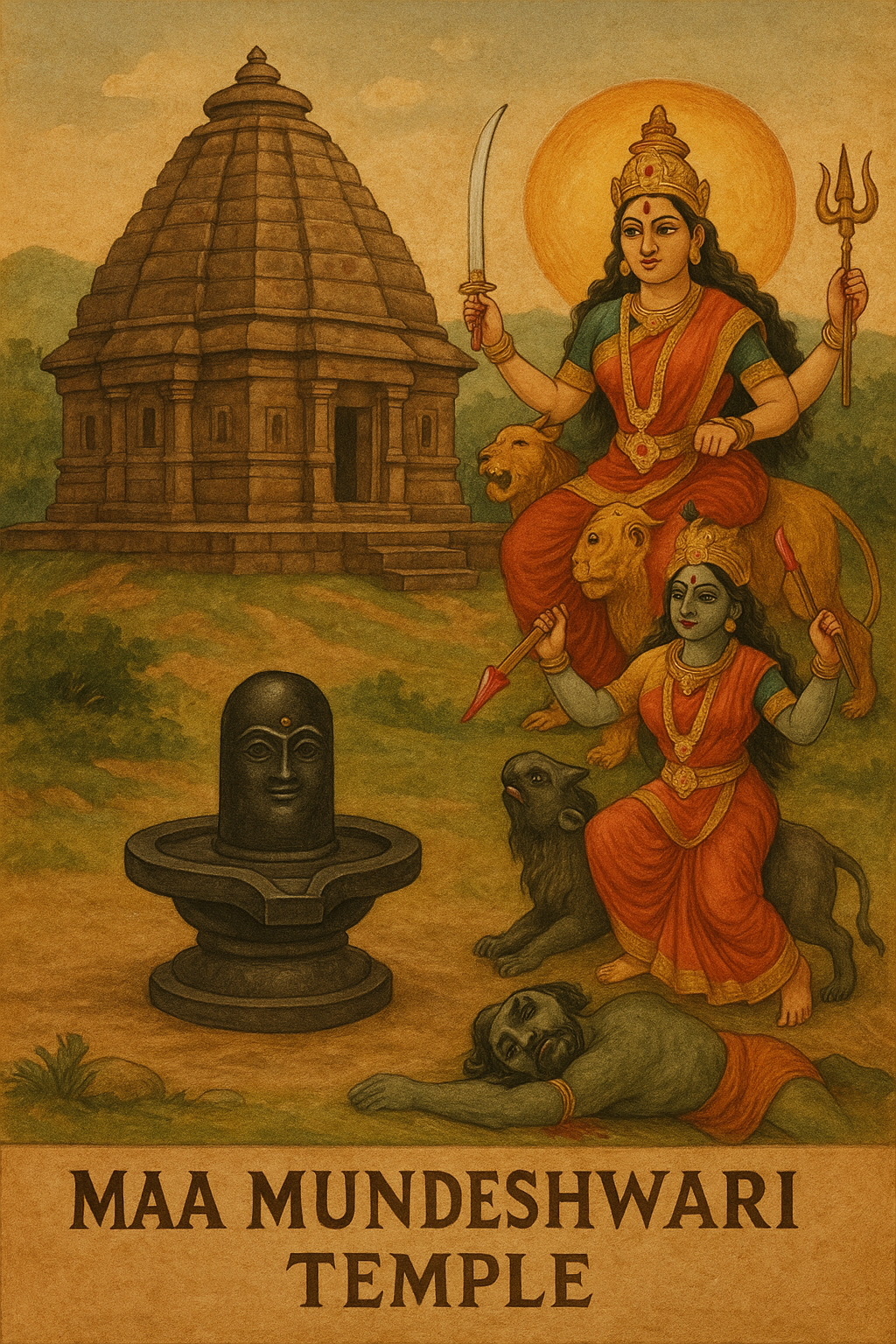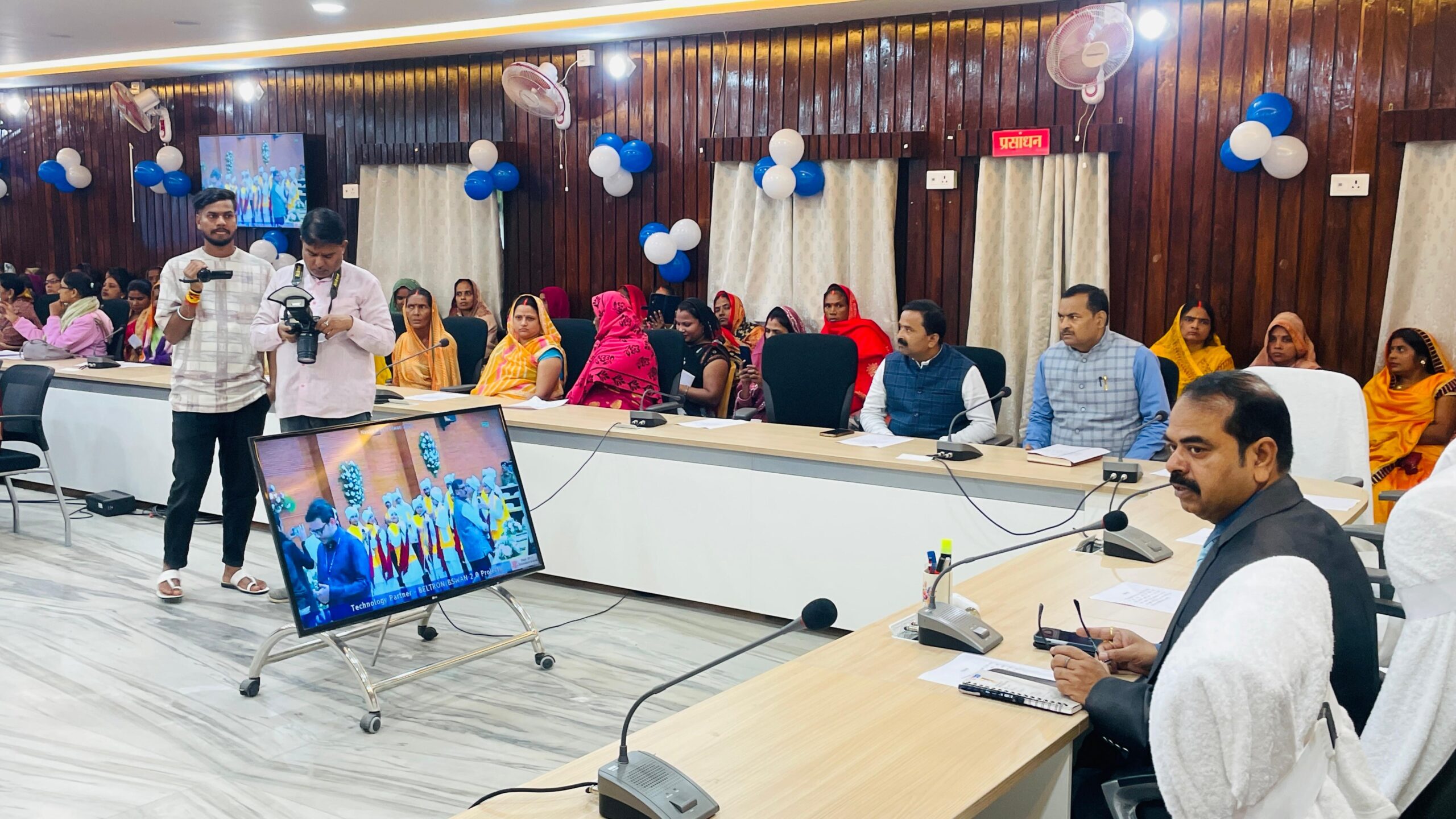
अर्जुन ने कहा: हे कृष्ण! युद्ध के लिए उपस्थित इन स्वजनों को देखकर मेरा शरीर शिथिल हो रहा है
Read Previous – Bhagavad gita Chapter 1: Arjuna Vishada Yoga – Shlokas 1 -27 Know more – Hindi/English
Verse 27
Sanskrit: श्वशुरान्सुहृदश्चैव सेनयोरुभयोरपि | तान्समीक्ष्य स कौन्तेयः सर्वान्बन्धूनवस्थितान् ||27||
Hindi: दोनों सेनाओं में अपने श्वसुरों और मित्रों को भी देखा। उन सभी को देखकर कौन्तेय अर्जुन अत्यंत करुणा से भर गया और दुःखी होकर बोला ||27||
English: He also saw fathers-in-law and well-wishers in both armies. Seeing all these kinsmen arrayed, Arjuna was filled with deep compassion and spoke sorrowfully. ||27||
Verse 28
Sanskrit: कृपया परयाविष्टो विषीदन्निदमब्रवीत् | अर्जुन उवाच | दृष्ट्वेमं स्वजनं कृष्ण युयुत्सुं समुपस्थितम् ||28||
Hindi: अर्जुन ने कहा: हे कृष्ण! युद्ध के लिए उपस्थित इन स्वजनों को देखकर मेरा शरीर शिथिल हो रहा है ||28||
English: Arjuna said: O Krishna, seeing these kinsmen gathered here, eager to fight, my limbs fail and my mouth is parched. ||28||
Verse 29
Sanskrit: सीदन्ति मम गात्राणि मुखं च परिशुष्यति | वेपथुश्च शरीरे मे रोमहर्षश्च जायते ||29||
Hindi: मेरे अंग शिथिल हो रहे हैं, मुख सूख रहा है, शरीर काँप रहा है और रोमांच हो रहा है ||29||
English: My body trembles, my hair stands on end, and my skin burns. ||29||
Verse 30
Sanskrit: गाण्डीवं स्रंसते हस्तात्त्वक्चैव परिदह्यते | न च शक्नोम्यवस्थातुं भ्रमतीव च मे मनः ||30||
Hindi: गाण्डीव धनुष मेरे हाथ से गिर रहा है, त्वचा जल रही है, और मैं खड़ा नहीं रह पा रहा हूँ, मेरा मन चक्कर खा रहा है ||30||
English: The Gandiva bow slips from my hand, my skin burns, and I am unable to stand; my mind seems to be whirling. ||30||
Verse 31
Sanskrit: निमित्तानि च पश्यामि विपरीतानि केशव | न च श्रेयोऽनुपश्यामि हत्वा स्वजनमाहवे ||31||
Hindi: हे केशव! मैं विपरीत शकुन देख रहा हूँ और युद्ध में स्वजनों को मारकर कोई कल्याण नहीं देखता ||31||
English: I see omens of evil, O Kesava, and I foresee no good in killing my kinsmen in battle. ||31||
Verse 32
Sanskrit: न काङ्क्षे विजयं कृष्ण न च राज्यं सुखानि च | किं नो राज्येन गोविन्द किं भोगैर्जीवितेन वा ||32||
Hindi: हे कृष्ण! मुझे न तो विजय की इच्छा है, न राज्य की और न सुखों की। हे गोविन्द! हमें राज्य, भोग और जीवन से क्या लाभ? ||32||
English: I desire neither victory, O Krishna, nor kingdom, nor pleasures. What is the use of kingdom, or enjoyment, or even life, O Govinda? ||32||
Verse 33
Sanskrit: येषामर्थे काङ्क्षितं नो राज्यं भोगाः सुखानि च | त इमेऽवस्थिता युद्धे प्राणांस्त्यक्त्वा धनानि च ||33||
Hindi: जिनके लिए हम राज्य, भोग और सुख चाहते हैं, वे ही यहाँ युद्ध में अपने प्राण और धन त्यागकर खड़े हैं ||33||
English: Those for whose sake we desire kingdom, enjoyments, and pleasures, stand here in battle, having renounced life and wealth. ||33||
Verse 34
Sanskrit: आचार्याः पितरः पुत्रास्तथैव च पितामहाः | मातुलाः श्वशुराः पौत्राः श्यालाः सम्बन्धिनस्तथा ||34||
Hindi: आचार्य, पिता, पुत्र, पितामह, मामा, श्वसुर, पौत्र, साले और अन्य संबंधी ||34||
English: Teachers, fathers, sons, grandfathers, maternal uncles, fathers-in-law, grandsons, brothers-in-law, and other relatives. ||34||
Verse 35
Sanskrit: एतान्न हन्तुमिच्छामि घ्नतोऽपि मधुसूदन | अपि त्रैलोक्यराज्यस्य हेतोः किं नु महीकृते ||35||
Hindi: हे मधुसूदन! मैं इन्हें मारना नहीं चाहता, चाहे ये मुझे मारने पर भी उतारू हों। त्रैलोक्य के राज्य के लिए भी नहीं, फिर पृथ्वी के लिए तो क्या कहना ||35||
English: O Madhusudana, I do not wish to kill them, even if they kill me. Not even for the sovereignty of the three worlds, let alone for the earth. ||35||
Verse 36
Sanskrit: निहत्य धार्तराष्ट्रान्नः का प्रीतिः स्याज्जनार्दन | पापमेवाश्रयेदस्मान्हत्वैतानाततायिनः ||36||
Hindi: हे जनार्दन! धृतराष्ट्र के पुत्रों को मारकर हमें क्या सुख मिलेगा? इन आक्रमणकारियों को मारकर तो हमें केवल पाप ही लगेगा ||36||
English: What pleasure can we derive, O Janardana, from killing the sons of Dhritarashtra? Sin alone will accrue to us by killing these felons. ||36||
Verse 37
Sanskrit: तस्मान्नार्हा वयं हन्तुं धार्तराष्ट्रान्स्वबान्धवान् | स्वजनं हि कथं हत्वा सुखिनः स्याम माधव ||37||
Hindi: इसलिए, हे माधव! हमें अपने स्वजनों को मारना उचित नहीं है। अपने स्वजनों को मारकर हम कैसे सुखी हो सकते हैं? ||37||
English: Therefore, we should not kill the sons of Dhritarashtra, our relatives. How can we be happy by killing our own kinsmen, O Madhava? ||37||
Verse 38
Sanskrit: यद्यप्येते न पश्यन्ति लोभोपहतचेतसः | कुलक्षयकृतं दोषं मित्रद्रोहे च पातकम् ||38||
Hindi: यद्यपि लोभ से अंधे हुए ये लोग कुल के नाश से उत्पन्न दोष और मित्रद्रोह के पाप को नहीं देखते ||38||
English: Though these men, with their hearts overpowered by greed, see no evil in the destruction of families and no sin in treachery to friends. ||38||
Verse 39
Sanskrit: कथं न ज्ञेयमस्माभिः पापादस्मान्निवर्तितुम् | कुलक्षयकृतं दोषं प्रपश्यद्भिर्जनार्दन ||39||
Hindi: हे जनार्दन! हम जो कुल के नाश से उत्पन्न दोष को जानते हैं, पाप से क्यों नहीं हटें? ||39||
English: Why should we not, who clearly see the sin in the destruction of the family, think of turning away from this sin, O Janardana? ||39||
Verse 40
Sanskrit: कुलक्षये प्रणश्यन्ति कुलधर्माः सनातनाः | धर्मे नष्टे कुलं कृत्स्नमधर्मोऽभिभवत्युत ||40||
Hindi: कुल के नाश से कुल के सनातन धर्म नष्ट हो जाते हैं और धर्म के नाश होने पर अधर्म कुल को आ घेरता है ||40||
English: In the destruction of a family, the eternal family traditions perish; and when these traditions perish, lawlessness overtakes the entire family. ||40||
Verse 41
Sanskrit: अधर्माभिभवात्कृष्ण प्रदुष्यन्ति कुलस्त्रियः | स्त्रीषु दुष्टासु वार्ष्णेय जायते वर्णसङ्करः ||41||
Hindi: हे कृष्ण! अधर्म के प्रबल होने से कुल की स्त्रियाँ दूषित हो जाती हैं और स्त्रियों के दूषित होने पर वर्णसंकर संतति उत्पन्न होती है ||41||
English: When lawlessness prevails, O Krishna, the women of the family become corrupt; and when women become corrupt, O Varshneya, it results in the intermingling of castes. ||41||
Verse 42
Sanskrit: सङ्करो नरकायैव कुलघ्नानां कुलस्य च | पतन्ति पितरो ह्येषां लुप्तपिण्डोदकक्रियाः ||42||
Hindi: वर्णसंकर कुलघातियों और कुल के लिए नरक का कारण होता है। उनके पितर पिंड और जल की क्रिया से वंचित होकर गिर जाते हैं ||42||
English: Such intermingling leads the family and the destroyers of the family to hell; deprived of the offerings of rice and water, the ancestors fall. ||42||
Verse 43
Sanskrit: दोषैरेतैः कुलघ्नानां वर्णसङ्करकारकैः | उत्साद्यन्ते जातिधर्माः कुलधर्माश्च शाश्वताः ||43||
Hindi: इन वर्णसंकर उत्पन्न करने वाले दोषों से कुलघातियों के सनातन कुलधर्म और जातिधर्म नष्ट हो जाते हैं ||43||
English: By these evils, causing the intermingling of castes, the eternal family traditions and the caste duties are destroyed. ||43||
Verse 44
Sanskrit: उत्सन्नकुलधर्माणां मनुष्याणां जनार्दन | नरकेऽनियतं वासो भवतीत्यनुशुश्रुम ||44||
Hindi: हे जनार्दन! जिनके कुलधर्म नष्ट हो गए हैं, ऐसे मनुष्यों का अनिश्चितकाल तक नरक में वास होता है, ऐसा हमने सुना है ||44||
English: O Janardana, we have heard that those men whose family duties are destroyed dwell in hell for an indefinite period. ||44||
Verse 45
Sanskrit: अहो बत महत्पापं कर्तुं व्यवसिता वयम् | यद्राज्यसुखलोभेन हन्तुं स्वजनमुद्यताः ||45||
Hindi: हाय! हम बड़े पाप करने को तैयार हो गए हैं, जो राज्य और सुख के लोभ से अपने स्वजनों को मारने के लिए उद्यत हो गए हैं ||45||
English: Alas! We are resolved to commit a great sin by being ready to kill our kinsmen out of greed for the pleasures of a kingdom. ||45||
Verse 46
Sanskrit: यदि मामप्रतीकारमशस्त्रं शस्त्रपाणयः | धार्तराष्ट्रा रणे हन्युस्तन्मे क्षेमतरं भवेत् ||46||
Hindi: यदि शस्त्रधारी धृतराष्ट्र के पुत्र युद्ध में मुझ अशस्त्र और प्रतिकार न करने वाले को मार डालें, तो वह मेरे लिए अधिक कल्याणकारी होगा ||46||
English: If the sons of Dhritarashtra, weapons in hand, should slay me in battle, unresisting and unarmed, that would be better for me. ||46||
Verse 47
Sanskrit: सञ्जय उवाच | एवमुक्त्वार्जुनः सङ्ख्ये रथोपस्थ उपाविशत् | विसृज्य सशरं चापं शोकसंविग्नमानसः ||47||
Hindi: संजय ने कहा: इस प्रकार कहकर अर्जुन युद्धभूमि में रथ के पिछले भाग में बैठ गया और शोक से व्याकुल मन से बाण और धनुष को त्याग दिया ||47||
English: Sanjay said: Having spoken thus, Arjuna cast aside his bow and arrows and sat down on the chariot, his mind overwhelmed with sorrow. ||47||
![]()
Discover more from जन विचार
Subscribe to get the latest posts sent to your email.







